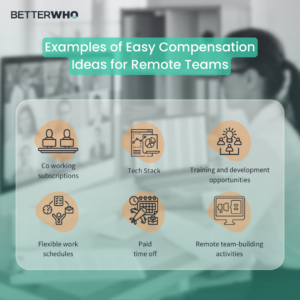In today’s rapidly evolving work landscape, remote work has transitioned from a temporary solution to a permanent fixture for many organizations. However, crafting an effective compensation management strategy for remote teams remains a challenge for many business leaders. This blog explores the economic benefits of remote work flexibility, cost-saving compensation strategies, and the profound impact of these approaches on employee retention and company profitability.
The Economic Benefits of Remote Work Flexibility
Remote work flexibility is not merely a perk but a cornerstone of modern compensation packages. It addresses employees’ growing demand for a better work-life balance, leading to increased job satisfaction and productivity. Flexible schedules allow employees to work when they are most productive, contributing to higher-quality work and greater efficiency.
Cost-Saving Compensation Strategies for Remote Teams
Innovative compensation strategies that cater to the needs of remote employees can significantly reduce company expenses. For instance, offering mental health support, technology allowances, and professional development opportunities are cost-effective ways to enhance employee satisfaction and loyalty. These non-traditional benefits, valued highly by remote workers, can lead to substantial savings by reducing turnover rates and the associated costs of hiring and training new employees.

Strategic Compensation for Remote Workers
A comprehensive compensation strategy for remote workers should not only meet their unique needs but also comply with relevant laws and regulations. Both Comptool and Hire With Near emphasize the importance of integrating competitive salaries, flexible working arrangements, and meaningful benefits such as health insurance and professional growth opportunities.
Such a strategy fulfills legal obligations and significantly enhances job satisfaction and loyalty among remote employees, fostering a positive company culture and boosting operational efficiency.

The Impact of a Strong Compensation Management Strategy on Retention Rates
A well-planned compensation management strategy is crucial for retaining top talent. Research shows that competitive salaries, coupled with comprehensive benefits packages, are key motivators for employees to stay with a company. Furthermore, transparent communication regarding compensation and growth opportunities fosters trust and commitment, further reducing turnover rates. Implementing employee recognition programs, as studies suggest, can decrease turnover rates by up to 31%, underscoring the importance of acknowledging employees’ contributions.
Building a Positive Company Culture Through Compensation
Compensation and benefits are powerful tools for cultivating a positive company culture. By aligning compensation strategies with company values and ensuring equitable treatment for all employees, businesses can create an environment where employees feel valued and respected. Engaged employees are more likely to be productive and stay with the company longer, contributing to a virtuous cycle of growth and satisfaction.
Looking Ahead – The Future of Remote Compensation and Company Success
As the remote work landscape continues to evolve, so too will the strategies for compensating remote employees. Future trends may include an increased focus on personalized compensation packages, greater use of technology in managing and communicating compensation, and a deeper understanding of the global implications of remote work. Companies that stay ahead of these trends and prioritize their employees’ compensation and benefits will be well-positioned for success in the competitive global market.
Here you have a couple of free resources that will help you through the process of defining a culture and value-aligned compensation strategy for your remote workers.
Effective compensation management for remote teams is not just about paying salaries; it’s about investing in your employees’ well-being, satisfaction, and growth. By adopting flexible work schedules, offering meaningful benefits, and fostering a positive company culture, businesses can enhance their profitability and ensure long-term success. As we look to the future, the strategic importance of remote work compensation will only continue to grow, making it imperative for companies to adapt and thrive.
If you’re ready to start this journey with us, contact us to discuss how we can help your business thrive!
Get support and engage with like-minded property managers on our dedicated FB group.




